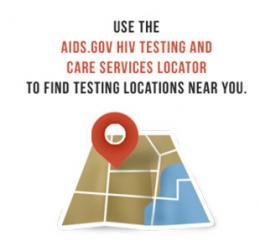Self tests can be a great way to discreetly test oneself for HIV/AIDS. Any positive result should be confirmed by a health worker in the community. Additionally, at fifty dollars per test, it may be useful for agencies addressing intimate partner violence to keep a few on hand for survivors who believe they may have been exposed to HIV. Agencies wishing to support survivors should connect with their local ASO for additional training and information.
Often, medical facilities do HIV testing, which is covered by most insurance companies including Medicare and Medicaid. Additionally, in many cities and towns across the US, there are free clinics, AIDS service organizations, family planning clinics, community health centers and mobile vans. When searching for clinics, confidentiality and safety should also be considerations.
You can also:
- Call 800-CDC-INFO (800-232-4636) to ask for free testing sites in your area.
- Contact your local health department.
- Get a home testing kit (the Home Access HIV-1 Test System or the OraQuick In-Home HIV Test) from a drugstore.
 HIV Test Locations: AIDS.gov contains the most up to date and comprehensive list of HIV testing sites in the country. It includes small non-profits with mobile services, and hospitals.
HIV Test Locations: AIDS.gov contains the most up to date and comprehensive list of HIV testing sites in the country. It includes small non-profits with mobile services, and hospitals.









